- Home
- Sherwood Smith
A Stranger to Command Page 3
A Stranger to Command Read online
Page 3
Investigations. This was adult politics—until now words overheard, worried glances observed, but no facts.
“The Marloven Hess academy is where their commanders are trained. And though the Marlovens’ place in history occupies an... ambivalent position at best,” his father had said with a deprecating gesture, “no one has ever said that their commanders were weak or indecisive. Their kings are trained there, as well as their commanders, which argues for lessons in statecraft. It might chance that, in future, such training could benefit our kingdom.”
“But is that not the responsibility of the king?” he had asked.
“The responsibilities of the king are... sometimes difficult to define,” his father had said, taking him by surprise yet again. “I am about to tell you something that none of the young people your age know. We recently heard, again third hand, that Rannic Turlee didn’t ride off on a wager, as we were led to believe. He was found murdered. And we are very much afraid that the mysterious disappearances and accidents of far too many outspoken heirs were murders as well. But though we are told the deeds were done by brigands, too many ordinary people have seen no highwaymen, brigands, or outlaws on our roads. Only the king’s men riding back and forth.”
“But that would mean the warriors are turned brigand?” he had said in disbelief. He personally knew some of the king’s guard.
“Or they were given orders,” his father had said.
Impossible! Except his father had never lied to him.
“For Rannic’s death, for example, there appears to be far too much secondary evidence pointing to the king’s own cousin....”
Shevraeth shuttered away the memory. He’d agreed with his parents that it was a good idea for him to go away. Now he wondered again, why here? Why not a foreign court? Why not anywhere else?
And if it had to be here, why couldn’t Russav Savona come, his cousin? They had been like brothers since Russav’s parents suffered an accident—
Their deaths were not an accident.
His father had said, “I would send Savona with you if I could. But the king regards Russav as his ward. And dukes, even fifteen-year-old ones, don’t usually leave their lands. We do not wish to draw the king’s eye any more than we have.”
Shevraeth rubbed his hand over his face. No use in whining, even to himself. He was here. He had agreed to it. He had even looked forward to it, he remembered, when climbing the ramp onto the ship in Mardgar Harbor.
That was then, this is now. So deal with the now. He began reviewing all the words he’d learned that day, until they jumbled through his mind, chased by images from home, from here, and he slept at last.
It was fitful sleep, disturbed by unfamiliar sounds, smells, the lumpy mattress, until the clatter of a stick against the wall and a shout woke them all abruptly: “Rise up, get ready for inspection!”
FOUR
Russav:
I don’t know if you’ll ever see this letter, but I have what they call liberty for the first time and nothing else to do except think about home, and you did make me promise to write. At this point it’s a tossup whether I carry it home and hand it to you, or pitch it in the fire. Liberty! Yet are you any more liberated, there under Galdran’s eyes? Sometimes I think about what ‘liberty’ means to different people at different times. Enough of that.
You asked me to tell you if the swagger in the history books about Marlovens was real or fart noise. It’s not fart noise. Of course I haven’t seen them at war. But I haven’t seen anyone at war, so we both know how much my opinion is worth.
Their opinion of me? I’m a soft-handed, sloth-raised aristocrat and couldn’t defend myself against a blind snake. An aged blind snake. And I should by rights be housed down with the ten year old scrubs, or pups, in the lower school. Apparently we are colts. That’s the first two years in the upper academy. You don’t call yourselves these things, pups, scrubs, colts. They call themselves men. Good practice in not laughing, when you hear a boy of nine or ten squeaking about the “men” in his barracks. Tradition says the pups are as worthless as they are useless, but when they cross from the lower school to the upper, they add arrogance to their worthlessness. At least, everyone seems to be determined to spare us colts the peril of thinking ourselves worth living. No danger of that.
The only things that kept me from going straight home and dedicating the rest of my hollow life to the drinking, gambling, dancing, and lounging that Galdran thinks I’m doing are accidental. And both I lay at your feet, since you harassed me into that game of vaulting on horseback, and then that next summer, nagged me into knife throwing so we could impress Rannic. Remember the monotony of that entire year, practicing for two bells every day—and how he thrashed us both for our gall in showing him up? Yes I blamed you for all of it and yes you said it would be useful some day. So go ahead and gloat. The fact that most of the time I can hit a target with a knife, either hand, overhand or underhand throw, seems to actually matter here. Unlike at court in Remalna-city, where the daggers are all verbal, and no one is ever likely to toss a knife, I least of all.
Otherwise, all those masters my father so carefully chose and hired are apparently untutored fools. No, it’s not true, that’s me feeling sorry for myself because every bone and muscle in my body aches, even when I sit here on my bunk cursing you for lying at your ease at home, your time your own.
Well, and Galdran’s. Right.
So let me end with this observation. On the ship journey here I entertained myself with mental pictures of how brilliantly I would exhibit my skills, moving on to master statecraft while everyone around me tried to catch up with me. Statecraft! Reality is, I’ll get about as close to statecraft as to the moon, and meanwhile I am told I don’t even know how to properly ride a horse. But—and this is very important, worth crossing the continent for—I do know how to make a bed under the count of twenty.
Clang-g-g!
This was his third morning. Shevraeth now knew what the bells meant.
He was already dressed, his bunk neat, his trunk packed like all the others. He had been lying on his bed writing while those still in the barracks talked quietly. Some had vanished before dawn. He did not know where, and did not ask. As the unmelodic clang reverberated along the stone passageways everyone stashed whatever they had been doing, checked their beds and trunks one last time, then dashed outside.
He took his place in the silent line that marched to breakfast and went on mentally composing his letter:
Observation. You don’t ask questions unless you are invited to. At best you only get a retort as blunt as it is nasty for your pain. At worst you get scragged. Yes, they have that word. That is, they have three separate words for ‘scrag.’ Three that I know. Might be more. I wouldn’t be the least surprised.
They have a lot of slang. A ‘breeze’ is a caning from one of the boy commanders, called radlavs, or rads. The rads appear to be limited to no more than three hits (no more than once in a day) but anyone who tries anything after getting his one breeze is reported to the senior radlav, and apparently you don’t want that unless you like your shoulders ‘measured.’
A ‘dusting’ is a fist fight between two or more, and a ‘brush’ is an organized battle. All are forbidden, of course, but are carried out just the same, and it’s interesting to see how ‘forbidden’ is interpreted in a place where everyone, from the oldest master to the smallest boy, seems to know that duels are fought in any one of three places—
Thunk! A sock on his arm broke into his thoughts. Space had opened between him and the boy in front. He picked up a tray and piled food on haphazardly.
Yes, the food, he thought. That requires a letter all of its own.
Not that the boys were stinted, or the food was ill-prepared. But Marlovens did not seem to regard taste as a matter of interest, judging from the lack of variety, the ever-present bitter flavor of rye, the smell of cabbage, seasoned—if you could call it that—by a light trace of garlic and onion braised in olive-press
ings. Only their cheeses were excellent, and judging from how quickly those got grabbed up, others were aware of their superiority. Their cheeses and heavy, layered berry-breads, very tart, and crunchy with nuts, were both excellent. He’d learned the night before that these nutbreads, baked very densely with honey instead of northern sugars, were the Marlovens’ travel food in the old days. They were still used on certain types of overnight expeditions.
He sat down with his tray.
We eat in silence, (he continued his mental composition) we march in silence, we do everything that proves we’re here not to think at all, but to be beaten into a shield wall of brainless warriors. How could this possibly be termed a school for learning command? More important, what was my father thinking?
Everyone seemed edgy. Shevraeth, frustrated at not being able to discern why, felt his neck and shoulders tighten. The others in his barracks ate quickly, and so did he, dunking and stacking his dishes when the others did.
Despite a thin drizzle blown in chilly drifts by a sharp wind, the lines formed up earlier than usual. Pale-eyed Zheirban, the Danas Valdlav or boy commander of the academy, was there waiting for them, the rain plastering his blond hair to his forehead.
In rigid cadence the radlavs counted off their barracks, and then Zheirban said, “This year there are more changes. As promised. You no longer go with your barracks in the mornings. Your rad will give you new orders. There are new classes.” His teeth showed briefly. “Such as history.”
He paused, eyes narrowed, but no one spoke.
No one moved.
Shevraeth sensed tension zinging between the upper-level seniors, betrayed by subtle signs. He wouldn’t have even seen the signs, his first day. He still couldn’t figure out what they meant.
“Afternoon games are the same as last year.” Zheirban nodded to one of the first-year seniors, who ran along the lines, handing out slips of paper to the radlavs.
When that was done, he signalled the dismissal, and they marched to their barracks to wait for the morning inspection.
As soon as they were inside, Stad exclaimed, “Talk, Janold! Or I die. Right here. On the floor. And who knows how many defaulters a corpse nets us?”
Some of the boys snickered, but under their breath.
“The king wants us learning history.” Janold studied the faces before going on. “Not only battles. Most of us already know all that. But what the kings did. What mistakes the kings made. Something about the neighboring kingdoms, and not just when they belonged to us.”
Marec whistled.
Nermand muttered something under his breath, and Holdan, who did everything with Nermand and Gannan, snickered meanly.
Janold turned to Nermand, who was an ordinary boy of sturdy build, looking like the others except for his habitual scowl. “Well, you must have said something stupid when you had your interview last year, because you’re assigned with the scrub class for the history. They’ll be learning rough stuff like where the borders lie.”
Several of the others hooted in derision. Janold, with an ear to the outside, began reading through the list. The boys stayed quiet, listening for their own names, and then afterward discussed in whispers what the class groupings meant.
Eyes turned Shevraeth’s way when his assignment was read. He did not have a history class at all. He was with the younger boys for sword training and hand-to-hand combat, and he was to go with the next level above his own barracks for knife work. That netted some exchanged looks. Finally, for riding, he was to report to the girls’ side.
Silence.
Shevraeth wondered what that meant. An insult? No, none of those faces—specifically Nermand’s—were gloating. Janold’s expression in particular was difficult to interpret.
No time for reactions or discussion. Through the open window behind Nermand’s bed they heard Zheirban splashing across the flagstones, and scrambled to their places at the foot of each bunk.
Zheirban entered, they all saluted (Shevraeth still had to fight the urge to bow) and he tromped down the center aisle and returned, but Shevraeth wasn’t the only one who noted his absent gaze. His eyes might be moving over the neat bunks and trunks, but Zheirban saw nothing. Whatever he truly looked at was inside his head.
He was gone again in the space of three breaths.
Janold said, “Defaulters in the classes still mark against the House, so watch it. Anyone does anything stupid, you’ll not only catch the breeze from the masters, you will from me, too. I want the gag off as badly as the rest of you.” He opened his hand toward the door.
“Gag?” Shevraeth murmured as he fell in behind Stad.
The curly dark head half-turned. “By Restday, if we don’t get three more defaulters, we drop to one inspection a week. And we also get to talk in mess.”
No time for further conversation. They had to run to their first class.
Shevraeth knew generally where the stables lay, and loped in that direction.
The stable area, with its training pens and runs, was the largest separate segment of the academy. Despite his wet clothing and the rain in his face Shevraeth was warm by the time he reached the stable gate. A swift rise of notes on a bugle preceded the sound of galloping hooves. He pressed against the gate. A double column of third-year seniors rode out, the horses’ tails streaming, the high-held banner snapping. The boys rode with consummate skill, looking even close at hand like they and the horses were one.
Shevraeth whistled under his breath, and when the splashing hooves were safely past, he continued on inside. When he spotted a boy pulling a cart of hay bales, he said, “Where—”
“Main stable,” said the boy, after a cursory glance.
Shevraeth grimaced as he loped round the corner and into the first big courtyard. Everyone seemed to know who he was, all right. Was it his long hair hanging wetly down his back? He didn’t look all that different from most of the others from the front, he was certain.
Mentally shrugging the subject off, he continued on his way. Because there were only a couple lines of girls, because the girls were apparently new to the academy routine, he assumed someone had given them a little side barn, so he was quite surprised to discover girls all over the main stable—the big one with the uncountable rows of stalls. It was the boys who trained off-side.
As he crossed the dirt yard, packed hard as rock over centuries, several girls paused in their tasks. The younger ones under the big overhang stared openly, one giggling and a taller one fingering her hair. A thin, pale-haired girl of about sixteen said something in a clipped undervoice and they returned to pitching hay, their manner exactly like younger boys threatened with a breeze, though Shevraeth did not see a cane in the older girl’s hands or in her belt.
This girl met his gaze, and without any change of expression tipped her head over her shoulder toward the great barn.
Shevraeth figured she was some sort of radlav. He gave her a two-finger salute over his heart, the same he gave the radlavs on the boys’ side. Her face relaxed minutely before she turned away.
Inside, everything smelled of horse and hay. Shevraeth walked slowly into the gloom, his eyes adjusting.
“Over here.”
A tall girl with short black curls dropped the reins of a haltered horse into the hands of another girl and walked toward Shevraeth, her pace leisurely, her dark eyes narrowed in assessment.
She wore the loose clothes of the under-school, except her collar was the high one of the seniors’ tunics. Her manner was that of a radlav and so he saluted, two fingers to heart, and she acknowledged with a wave, the corners of her mouth deepening. “Shevraeth?”
He began to bow, fought the instinct, and nodded awkwardly.
“I’m Senelac. Today let’s see what you know, and what you need to unlearn, before I figure out who’s going to teach you.”
He’d been silent so long that he had to talk now. “You didn’t hear the report from the first day disaster? Or do you need a laugh?”
He’d probabl
y gotten himself into trouble. Boys were not supposed to talk unless they were asked a direct question. That much he knew. But here he had anyway, because it was a girl, not a boy, because she did not carry a cane. He hadn’t expected the threat of violence because women didn’t use violence as a weapon at home. Of course Marloven girls wouldn’t be like those at home, and he braced for reprisal.
Intelligent black eyes scanned him from head to heels, then up to his face, before she said reflectively, “I do all my own evals.” She beckoned to the waiting girl, who brought forward a saddled horse, a fawn-colored mare with cream-white face and lower legs. “Up you go.”
No bridle. No bit. No real saddle, he saw when he stepped close. Just one of those quilted pads, securely attached to stirrups. And a halter, leaving the horse’s mouth free.
Shevraeth vaulted up, settled himself, then took the reins in the way he’d been taught, and glanced back expectantly.
“As I thought.” She crossed her arms. “Excellent seat. Just no grip, and once you get your forearms free and carry your reins, you’ll do.”
Grip? Carry? He looked at his hands.
“Grip here.” She smacked her hands against her thighs. “Never mind. Get her to walk. No, don't pull. Use your knees. One fast press. Your forearms and hands are part of the reins. You don’t pull, you guide. The feel against the horse's neck is enough, you never need to yank. Your arms and the reins are all one.”
Shevraeth loosened his arms and flexed his inner thigh, squeezing his knee against the animal’s side.
The mare obediently walked sedately forward.
“Two quick ones.”
He had to concentrate, but his muscles obeyed well enough for the mare began to trot. She headed for the wall, and he fought the urge to yank the rein to guide her in a circle, sensing that he would at best confuse the animal.
Senelac had been watching closely. “Lower leg press. Either side.”
He flexed his left calf, and the mare turned.

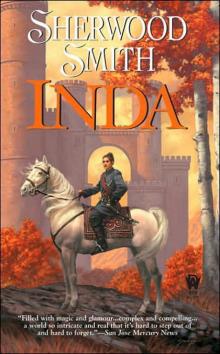 Inda
Inda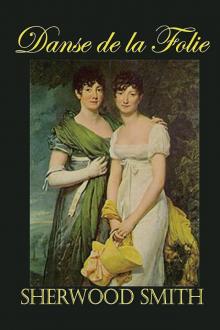 Danse De La Folie
Danse De La Folie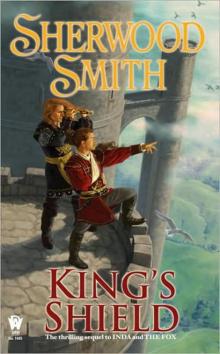 King's Shield
King's Shield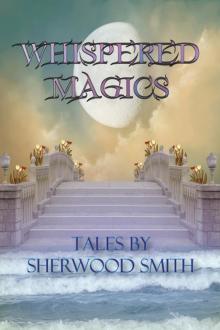 Whispered Magics
Whispered Magics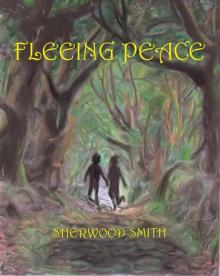 Fleeing Peace
Fleeing Peace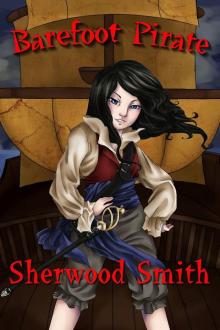 Barefoot Pirate
Barefoot Pirate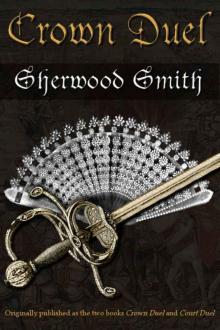 Crown Duel
Crown Duel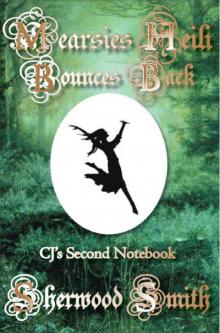 Mearsies Heili Bounces Back
Mearsies Heili Bounces Back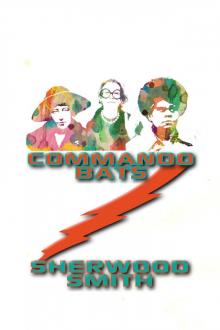 Commando Bats
Commando Bats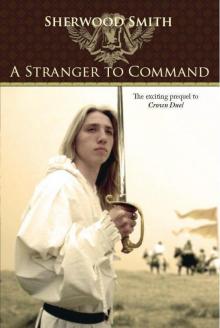 A Stranger to Command
A Stranger to Command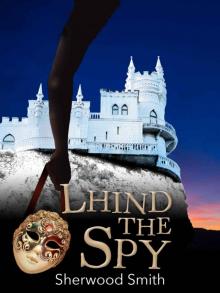 Lhind the Spy
Lhind the Spy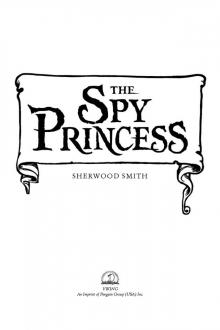 The Spy Princess
The Spy Princess Blood Spirits
Blood Spirits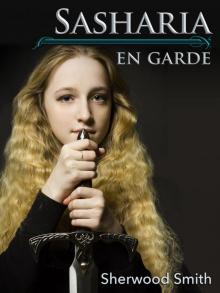 Sasharia en Garde
Sasharia en Garde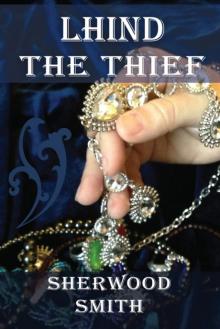 Lhind the Thief
Lhind the Thief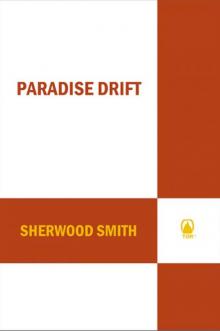 Paradise Drift
Paradise Drift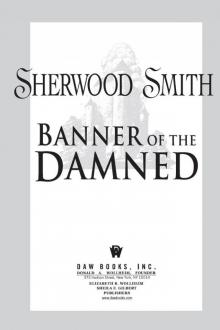 Banner of the Damned
Banner of the Damned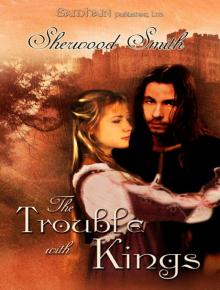 The Trouble With Kings
The Trouble With Kings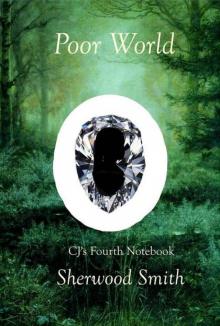 Poor World
Poor World Treason's Shore
Treason's Shore Wren Journeymage
Wren Journeymage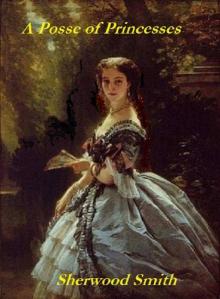 A Posse of Princesses
A Posse of Princesses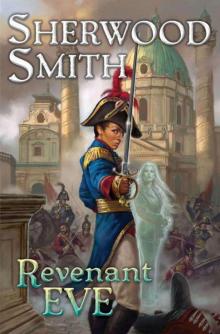 Revenant Eve
Revenant Eve Once a Princess
Once a Princess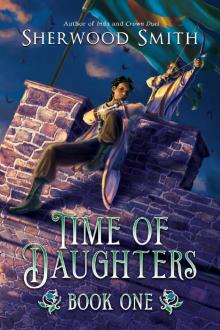 Time of Daughters I
Time of Daughters I Rondo Allegro
Rondo Allegro Coronets and Steel
Coronets and Steel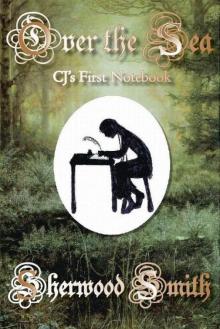 Over the Sea
Over the Sea Senrid
Senrid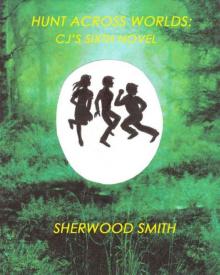 Hunt Across Worlds
Hunt Across Worlds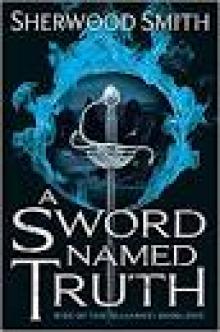 A Sword Named Truth
A Sword Named Truth The Fox
The Fox Twice a Prince
Twice a Prince Fair Winds and Homeward Sail: Sophy Croft's Story
Fair Winds and Homeward Sail: Sophy Croft's Story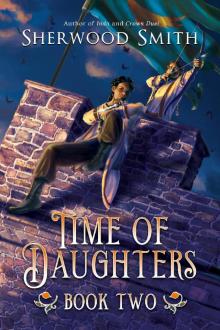 Time of Daughters II
Time of Daughters II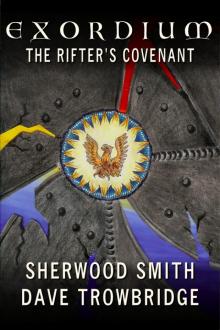 The Rifter's Covenant
The Rifter's Covenant The Phoenix in Flight
The Phoenix in Flight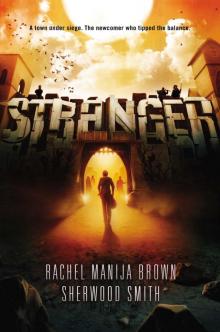 Stranger
Stranger The Thrones of Kronos
The Thrones of Kronos A Prison Unsought
A Prison Unsought Twice a Prince: Sasharia En Garde Book 2
Twice a Prince: Sasharia En Garde Book 2